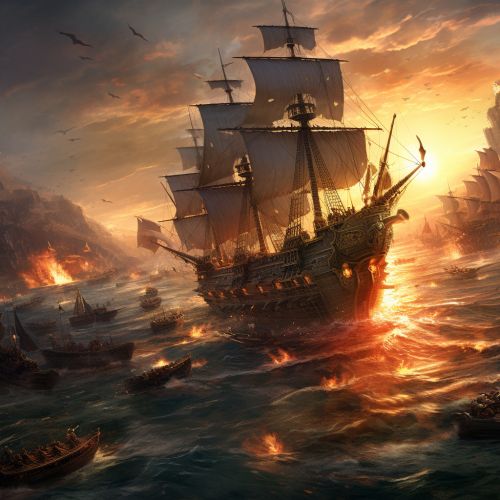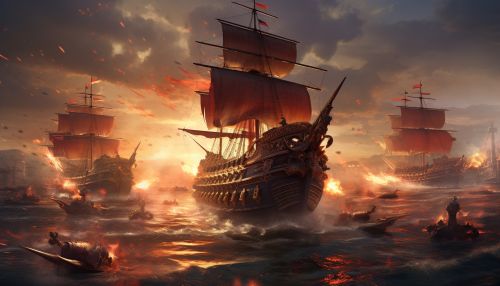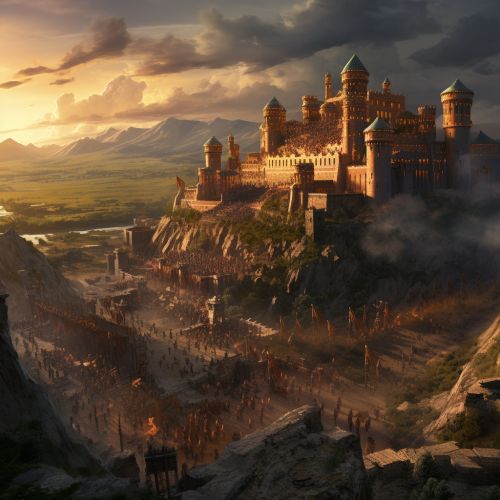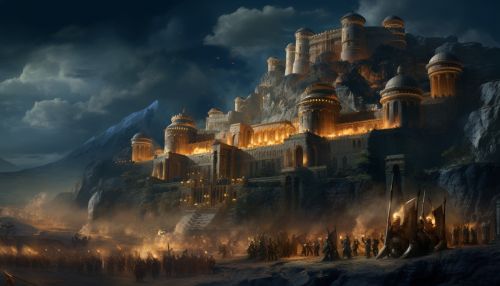Punic Wars
Introduction
The Punic Wars were a series of three wars fought between Rome and Carthage from 264 BC to 146 BC. These wars were among the largest wars in the Ancient World and they significantly shaped the course of history by laying the groundwork for the Roman Empire.
First Punic War (264–241 BC)
The First Punic War was primarily a naval conflict. Rome, a land-based power, had to build a navy from scratch to contend with the powerful Carthaginian fleet. The war began over control of Sicily, which lay close to Italy and was a valuable source of grain.


Causes
The immediate cause of the First Punic War was a conflict between the Sicilian cities of Messana and Syracuse. The Mamertines, a group of Italian mercenaries, seized Messana and found themselves under attack by Syracuse. They appealed to both Rome and Carthage for assistance, and both powers were drawn into the conflict.
Course of the War
The First Punic War was marked by several significant naval battles. The Romans, inexperienced at sea warfare, initially suffered several defeats. However, they developed a new type of ship, the corvus, which allowed them to board enemy ships and fight hand-to-hand, a style of fighting at which the Romans excelled.
Outcome
The war ended in a Roman victory, with the Treaty of Lutatius in 241 BC. Carthage was forced to cede Sicily to Rome and pay a large war indemnity. This marked the beginning of Roman expansion beyond the Italian Peninsula.
Second Punic War (218–201 BC)
The Second Punic War is the most famous of the Punic Wars, primarily because of the Carthaginian general Hannibal Barca. Hannibal famously led his army, including war elephants, over the Alps to attack Italy.
Causes
The causes of the Second Punic War are complex. The Carthaginians, led by Hannibal, were determined to fight back against Rome after the loss of the First Punic War. The immediate cause was a dispute over the city of Saguntum in Spain.
Course of the War
Hannibal's invasion of Italy was a remarkable feat. Despite losing many men and animals during the crossing of the Alps, he won several major victories against Rome. However, he was unable to capture the city of Rome itself.
Outcome
The war ended with a decisive Roman victory at the Battle of Zama in 202 BC. Hannibal was defeated by the Roman general Scipio Africanus. Carthage lost its empire and became a Roman client state.
Third Punic War (149–146 BC)
The Third Punic War resulted in the complete destruction of Carthage by Rome. The war was largely a siege of the city of Carthage, with the Romans eventually breaching the walls and sacking the city.


Causes
The causes of the Third Punic War were primarily political. The Romans, led by Cato the Elder, were determined to destroy Carthage completely.
Course of the War
The war was a prolonged siege, with the Carthaginians resisting fiercely. However, the Romans eventually breached the walls and captured the city.
Outcome
The outcome of the war was the complete destruction of Carthage. The city was sacked, its inhabitants sold into slavery, and the land around it was said to have been salted to prevent anything from growing again.
Impact
The Punic Wars had a profound impact on the ancient world. They marked the rise of Rome as the dominant power in the Mediterranean, a position it would hold for several centuries. The wars also led to the destruction of Carthage, one of the ancient world's greatest cities.
